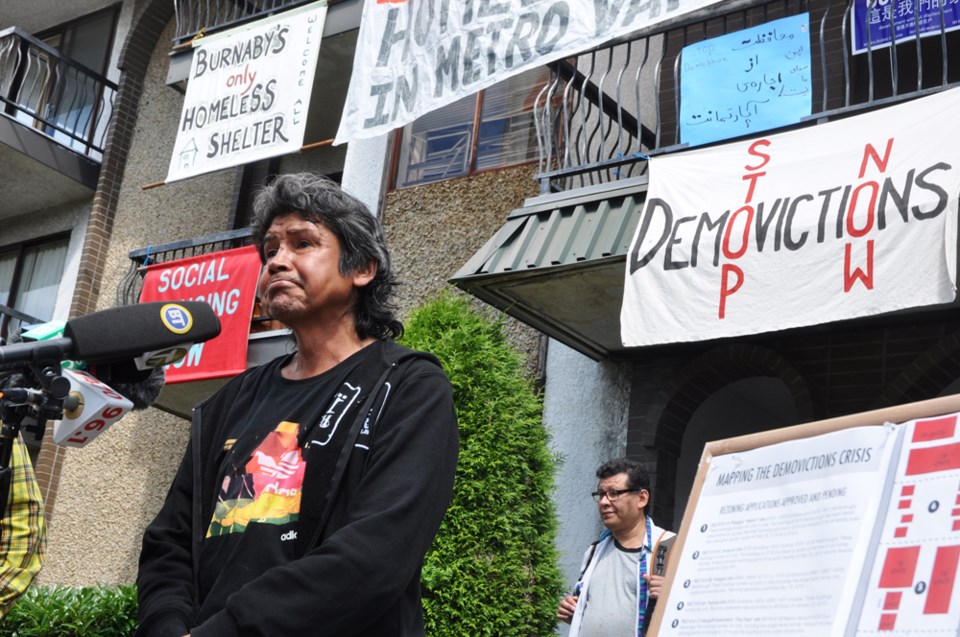A weird scene played out last week outside of Burnaby City Hall.
There, in front of a microphone, stood a man named Murray Martin saying nice things about Burnaby politicians.
That must’ve been surreal for everyone involved because Martin - an activist for the anti-poverty group ACORN - has stood in that same spot many times before railing against the city for the many demovictions that have displaced hundreds of residents.
But that’s how much things have changed and Martin gave full credit to Mayor Mike Hurley for forming the Mayor’s Task Force on Community Housing.
When renters began organizing five years ago, said Martin, a task force member, “it seemed like a hopeless campaign,” but they “just kept slogging on it for years and years and years” and eventually saw a new mayor come to power on a promise to take better care of them.
Hurley formed the task force and a final report has been issued. Housing activists applauded when, on July 29, council unanimously approved the task force report, which included 18 recommendations under four themes – “create livable neighbourhoods,” “invest in housing partnerships,” ''support rental housing and tenants” and “promote innovative housing policy and build capacity.”
There is a lot of digest in the report, the culmination of five months of work by the task force, including consultations with a variety of people in the community. You can read the full list here.
The recommendation that really earned praise from housing activists was the one calling on the city to“adopt a robust tenant relocation policy.”
The proposed policy would require landlords of buildings with six or more units to provide temporary accommodation – in either market rentals or “swing sites” – for tenants they displace. If the rent is higher in an interim market-rental unit, the original landlord would have to “top up” their tenants’ payments to ensure they aren’t paying more. The report suggests capping the top-up at 20 per cent above the average market rate found by the Canada Mortgage Housing Corporation. The proposal would also require landlords to cover up to $1,000 in moving costs for tenants moving in and out of temporary accommodations. Once a displaced tenant’s apartment is either renovated or replaced with a new development, they would have the opportunity to move back in at the same rent – subject only to regular annual increases for incumbent tenants.
That is some bold stuff and a game-changer for a city that became infamous over the years for people being demovicted.
The policies are, of course, just mere suggestions at this point, but Hurley said he expects something “very close” to become official policy as early as this September.
The devil, as always, is in the details.
We’ll see what the official policies are when they are created. We have no idea if this will result in anything close to resembling “affordability” but protecting the rights of tenants is a good first step.



